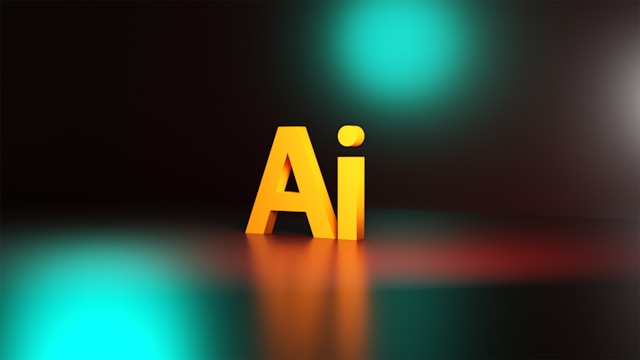AI generated content has transformed the way SEO professionals provide their SEO services when writing content, and has influenced the way you rank AI content on SEO compared way the human generated content rank before the outbreak of AI tools used in SEO. There are many tools like ChatGPT, Gemini, Jasper, and Writesonic can generate blog posts, product descriptions, and even full websites in seconds.
But with AI content flooding the internet, many content creators, marketers, and business owners have one big question:
Will using AI help or hurt my SEO rankings?
In this guide, we’ll break down how AI-generated content interacts with Google’s algorithm, what the search giant officially says about it, and how you can use AI tools without risking penalties.
What is AI-Generated Content?
AI-generated content is a type of auto-generated content such as texts that can be produced via a typed command prompts that can be generated by a machine learning algorithm trained on platforms that contains massive datasets. These platforms use natural language processing (NLP) to predict and create sentences that mimic human writing.
Examples of AI-generated content may include:
- Blog posts and articles
- Email newsletters
- Product descriptions for e-commerce
- Social media captions and ad copy
- Scripts for videos or podcasts
AI vs. Human Content:
- AI: Fast, scalable, consistent in tone, but sometimes lacks originality and depth and may sound outdated as well.
- Human: Rich in personal experience, nuanced, and emotionally engaging, but slower to produce a lot of content compared to AI.
How Search Engines Detect AI Content
Search engines don’t outright ban AI content – they evaluate it based on quality and user value.
Possible detection methods include:
- Linguistic patterns: Overly predictable sentence structure or unnatural repetition.
- Lack of depth insights: Not including real-life insights, practical examples, or expertise.
- Semantic content gaps: Content sounds generic or unrelated from the web user search intent.
The Impact of AI Content on SEO
Positive Effects
- Scalability: Quickly create large volumes of content to target more keywords.
- Consistency: Maintain a regular publishing schedule.
- SEO Optimization: Many AI tools suggest keywords, headings, and meta descriptions.
Negative Effects
- Generic or low-value content: May lead to poor user engagement and higher bounce rates.
- Fact-checking issues: AI sometimes produces incorrect or outdated information.
- Duplicate content risk: If multiple AI users create similar text, it can hurt rankings.
Google’s Official Guidelines on AI Content
Google’s position is clear:
The way content is created doesn’t matter – what matters is its quality, originality, and usefulness.
Key points from Google:
- Content should satisfy E-E-A-T: Experience, Expertise, Authoritativeness, Trustworthiness.
- AI-generated content is fine if it’s accurate, original, and serves the reader’s needs.
- Thin, spammy, or keyword-stuffed AI text risks penalties under the Helpful Content Update.
Best Practices for Using AI Content in SEO
To ensure AI works properly for your rankings and not against them:
- Edit Sections: Add your own perspective, personal insights, and new facts.
- Fact-Check: Verify stats, dates, and claims.
- Blend AI & Human Effort: Let AI handle outlines or first drafts, then add your unique touch.
- Optimize Naturally: Use keywords in headings, intro, and conclusion – not every sentence.
- Enhance Readability: Break up text with short paragraphs, bullet points, and visuals.
AI vs. Human-Written Content: Which Performs Better?
AI-Only Content: Fast and scalable but risks sounding generic.
Human-Only Content: Rich in creativity and authority but slower to produce.
Best Option: A hybrid approach – AI for speed + humans for originality and depth – tends to perform best in SEO.
Future of AI Content & SEO
What you can expect:
- Will become personalized AI content tailored mostly to individual search behavior.
- Better AI detecting tools by search engines, rewarding only genuinely useful content.
- Greater focus on originality and human insights as Google prioritizes unique perspectives.
The bottom line: AI won’t replace human creativity, but humans who use AI well will have an advantage.
Final Thoughts
AI content is the future of content production, and it can boost your SEO if used the right way strategically.
The right approach is to use AI in content production as the efficient assistant tool, but not entirely as a platform that replace human expertise and reasoning.
Formula for success in 2025:
✅ AI for drafting → ✅ Human for editing → ✅ Quality for ranking.
FAQ
Does AI content rank on Google?
Yes, if it is high quality, unique and meets search engine standards, it can even rank above human written content.
Can Google detect AI content?
Yes, but detection alone doesn’t lead to penalties – quality is the deciding factor on whether content is useful or not.
Is AI content bad for SEO?
Not necessarily. Low-quality content is bad for SEO, whether human or AI-written.
How do I optimize AI content for SEO?
Edit for clarity, add unique insights, and ensure proper keyword placement without stuffing.

